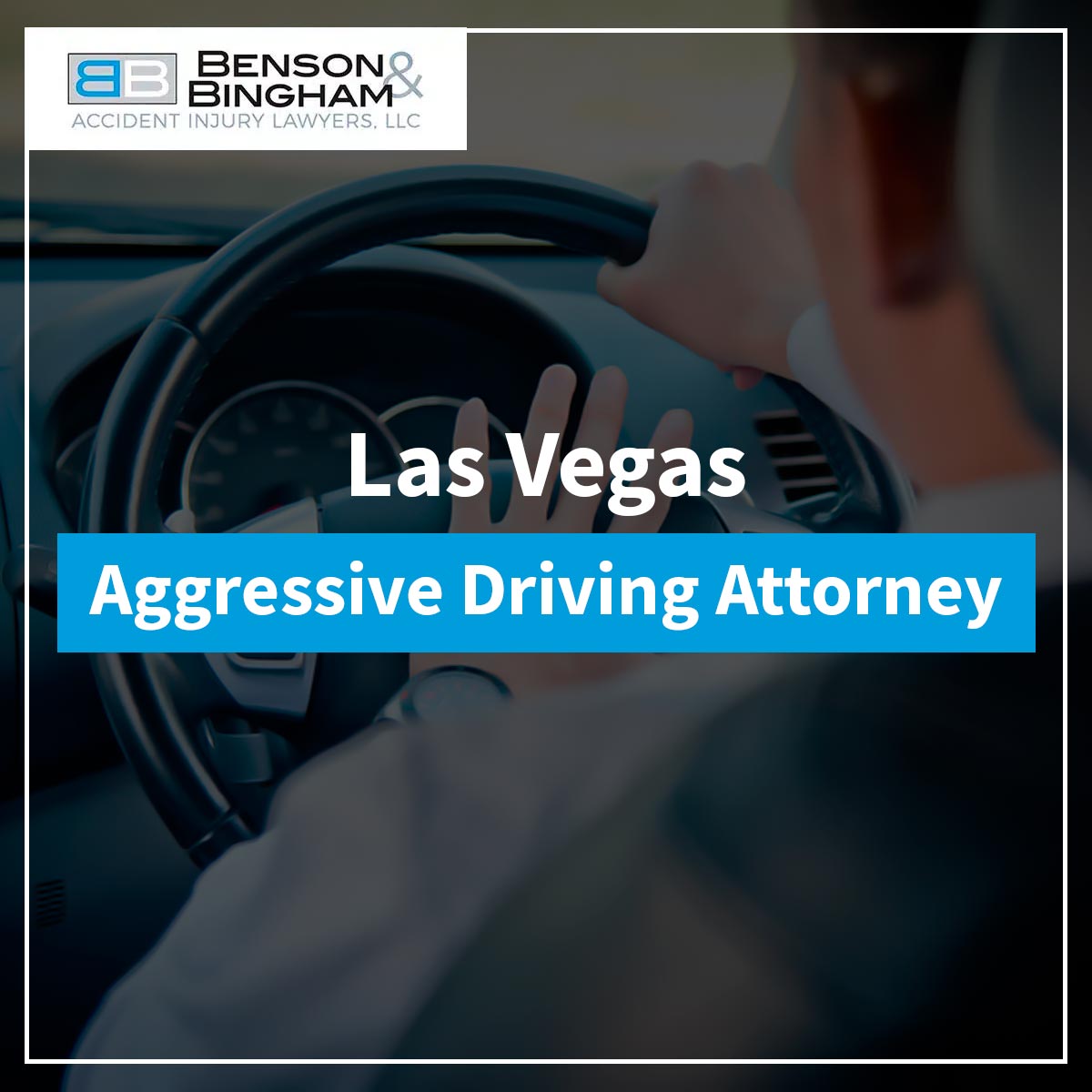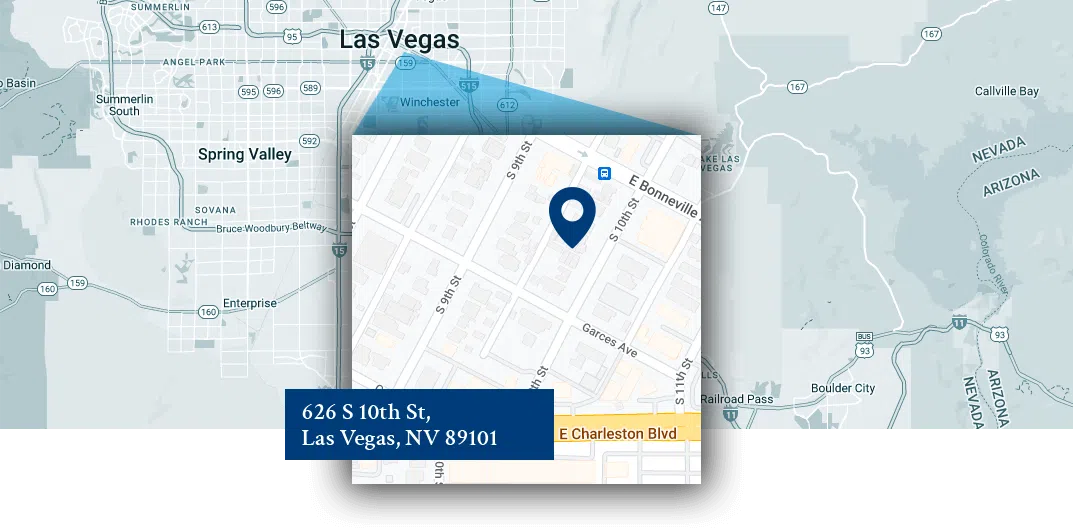Table Of Contents
- Meet Our Leading Aggressive Driving Attorneys: Joseph L. Benson II, Esq. & Ben J. Bingham, Esq.
- Key Elements Of Aggressive Driving Claims
- We Can Help You Get Compensated for the Following Damages
- Types Of Injuries Caused By Aggressive Driving Accidents
- Latest Settlements & Victories For Benson & Bingham
- How Our Las Vegas Aggressive Driving Attorneys Can Assist You
- Client Testimonials
- Visit Our Aggressive Driving Law Office In Las Vegas
- Navigating Nevada’s Car Accident Laws
- Frequently Asked Questions About Aggressive Driving Claims
- Top Aggressive Driving Behaviors That Lead To Accident Claims
- Hurt By Aggressive Driving Or Road Rage?
- Read More On Car Accidents Inside Our Blog
- Set Up A Free Consultation With Benson & Bingham Accident Injury Lawyers
Meet Our Leading Aggressive Driving Lawyers: Joseph L. Benson II, Esq. & Ben J. Bingham, Esq.
More Than 25 Years Of Experience In Nevada Aggressive Driving Law
Joseph L. Benson II, Esq., a founding partner of Benson & Bingham Accident Injury Attorneys, LLC, has been licensed to practice in Nevada since 2000. He specializes in aggressive driving cases in Las Vegas and has successfully handled thousands of cases in Justice, District, and Federal Court. Recognized in the Million Dollar Advocates Forum and “2022 Las Vegas Leading Lawyers” by Vegas magazine, Joseph offers expert legal representation in Civil Tort Litigation, leveraging his deep understanding of Nevada’s traffic laws and regulations.
Ben J. Bingham, Esq., also a founding partner, is renowned for his meticulous approach to personal injury law, especially in aggressive driving cases. Licensed to practice in Nevada since 2000, Ben was voted one of the Top 10 Personal Injury Attorneys in Nevada by the National Academy of Personal Injury Attorneys. His dedication and expertise have enabled him to successfully represent numerous clients in Vegas car accidents, securing substantial compensation and favorable outcomes.
Joseph and Ben’s commitment to bypassing intermediaries ensures clients receive prompt and direct communication. The firm has successfully secured $500 million in total compensation over 25 years, showcasing a proven track record of expertise. Benson & Bingham also operates on a no-win, no-fee basis, ensuring clients only pay if their case is won. This dedication to efficiency, client satisfaction, and legal excellence makes Benson & Bingham the premier choice for handling aggressive driving incidents.
Read More About What We Do >What Is Aggressive Driving Under Nevada Law?
Aggressive driving in Nevada is defined by a combination of dangerous behaviors that exhibit a disregard for the safety of others on the road. According to NRS 484B.650, aggressive driving includes actions such as:
Tailgating: Driving too closely behind another vehicle.
Erratic Lane Changes: Frequently switching lanes without warning.
Driving on the Shoulder: Using the road shoulder to bypass traffic.
Passing Illegally: Overtaking vehicles in no-passing zones.
Reckless Driving:Operating a vehicle in a dangerous manner.
Speeding: Racing or driving faster than road conditions allow.
Illegal Turns: Making turns where prohibited or unsafe.
Cutting Off: Deliberately moving in front of another vehicle abruptly.
Neglecting to Signal: Failing to use turn signals when required.
Not Yielding: Refusing to give way to other vehicles or pedestrians.
Ignoring Traffic Laws: Disregarding traffic signals and signs intentionally.
Intimidation with High-Beams: Flashing high-beams to pressure other drivers.
Aggressive Gestures: Making offensive gestures or comments towards other drivers.

These actions must occur within a short period and create an immediate hazard to other road users. Understanding the legal definition of aggressive driving is crucial, as it not only affects the liability in accident claims but also carries significant legal penalties, including fines, license suspension, and possible imprisonment. For victims, proving these elements can be key to securing compensation for damages and injuries sustained due to aggressive driving.
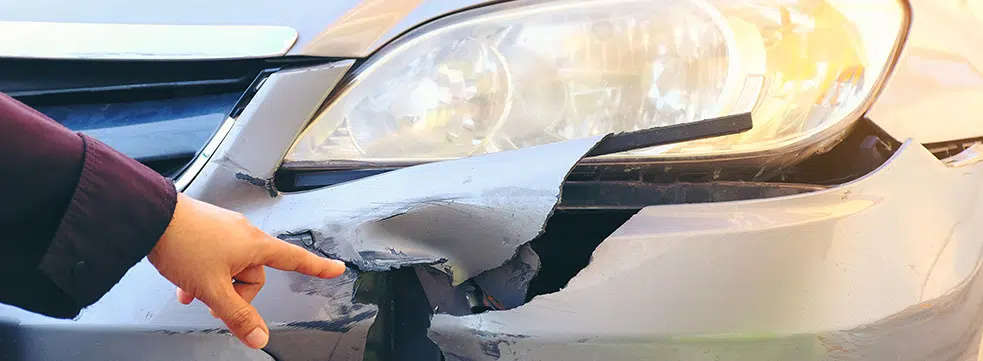
Who Is Liable For An Accident Caused By Aggressive Driving Or Road Rage?
In Nevada, the driver exhibiting aggressive driving or road rage behaviors is typically liable for accidents they cause. Liability can include compensation for damages, medical expenses, and other losses incurred by the victims, although Determining fault in an aggressive driving or road rage incident can be complex. Often, a thorough investigation is necessary to understand what went wrong and establish accountability. Proving liability involves demonstrating the aggressive actions and their direct link to the accident.
How To Start The Claim Process After An Aggressive Driver Hits You
To start the claim process after being hit by an aggressive driver in Vegas, follow these steps:
Report the Accident: Contact law enforcement immediately and file a police report. This is essential for documentation and for establishing fault.
Seek Medical Attention: Get a medical evaluation as soon as possible, even if you don’t think you are seriously injured. Medical records are crucial for your claim.
Gather Evidence: Collect evidence at the scene, including photos of the vehicles, the accident location, and any visible injuries. Obtain contact information from any witnesses.
Notify Your Insurance Company: Report the accident to your insurance provider. Provide them with all the necessary documentation, including the police report and medical records. Be careful in your communications with the insurance adjuster. Avoid making statements that could be interpreted as admitting fault or downplaying your injuries.
File a Claim: Depending on the circumstances, you may file a claim with your insurance company or directly against the aggressive driver’s insurance. It’s best to consult with a Personal Injury Attorney: A Vegas car accident attorney can help navigate the complexities of aggressive driving claims, negotiate with insurance companies, and ensure you receive fair compensation. They can also assist in gathering additional evidence, such as traffic camera footage or expert testimony.
Personal Injury Attorney: A Vegas car accident attorney can help navigate the complexities of aggressive driving claims, negotiate with insurance companies, and ensure you receive fair compensation. They can also assist in gathering additional evidence, such as traffic camera footage or expert testimony.
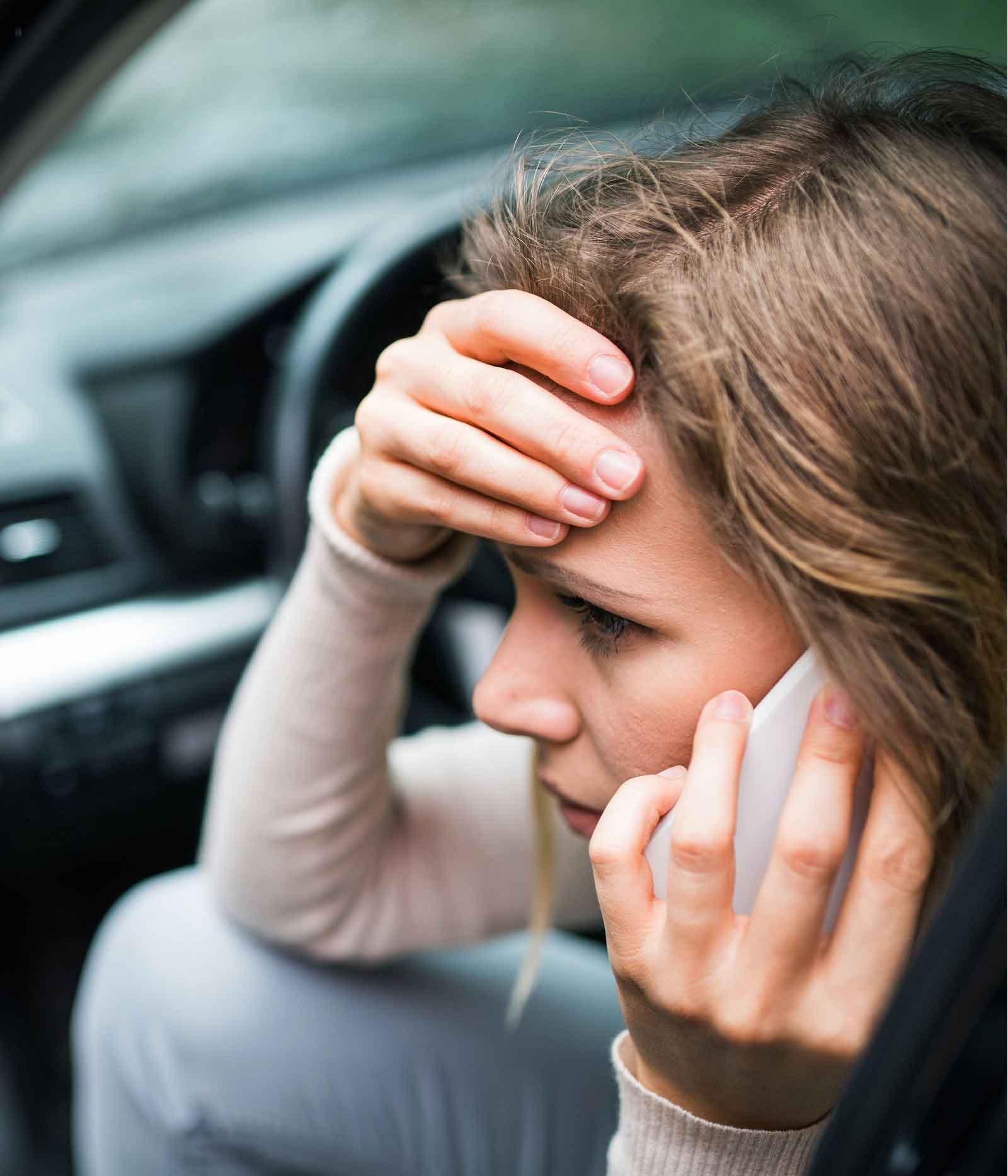
The Importance Of Hiring An Aggressive Driving Litigation Attorney
Hiring an aggressive driving litigation attorney is crucial for navigating the complexities of your case. An experienced attorney can gather essential evidence, negotiate with insurance companies, and represent you in court to ensure you receive fair compensation. They understand Nevada’s traffic laws and can effectively prove the aggressive driver’s liability, maximizing your chances of a successful outcome.
Understanding Lawyer Fees For Aggressive Driving Cases In Las Vegas
Lawyer fees for aggressive driving cases in Las Vegas typically operate on a contingency basis, meaning you only pay if your case is successful. This arrangement usually involves a percentage of the settlement or award. Additionally, there may be costs for court fees and other administrative expenses. It’s essential to discuss fee structures upfront with your attorney to ensure transparency and avoid unexpected costs. This approach allows victims to pursue justice without financial burden, ensuring they receive expert legal representation.
We Can Help You Get Compensated for the Following Damages:
Medical Bills
In the aftermath of an aggressive driving accident, medical bills can quickly accumulate. Common injuries such as fractures, TBIs, and soft tissue damage require extensive treatment, leading to high costs. Under Nevada law, victims can seek compensation for these expenses, so consulting with an experienced lawyer is a must as they can help you navigate the legal process, ensuring you receive the necessary funds to cover all medical-related costs, including hospital stays, surgeries, and ongoing rehabilitation.
Future Care
Future care expenses are a critical aspect of compensation after an aggressive driving accident. Injuries like TBIs, spinal cord injuries, and severe fractures often require long-term medical attention, including physical therapy, medications, and follow-up surgeries. Nevada law allows victims to claim compensation for these anticipated future costs. Working with a knowledgeable lawyer ensures that your future care needs are accurately assessed and included in your settlement, providing financial security for ongoing medical treatments.
Pain And Suffering
Pain and suffering encompass both the physical and emotional distress experienced by victims of aggressive driving accidents. This includes chronic pain, emotional trauma, and a decreased quality of life. Nevada law recognizes these damages, allowing victims to claim compensation for the significant impact on their lives, ensuring they receive justice for their suffering.
Lost Wages And/Or Ability To Work
Lost wages and reduced ability to work are significant concerns following an aggressive driving accident. Victims may miss work due to medical appointments or recovery time, resulting in immediate financial strain. Additionally, severe injuries can impair future earning potential, leading to long-term financial instability and impacting the victim’s ability to support themselves and their families, necessitating compensation for both past and future earnings.
Property Damage
Property damage is a common consequence of aggressive driving accidents, often resulting in significant repair or replacement costs for the victim’s vehicle. This damage can range from minor dents and scratches to total vehicle loss. Addressing property damage involves working with insurance companies and repair shops, ensuring that all costs are covered. Additionally, compensation may be necessary for any personal belongings damaged in the accident, such as laptops, tablets, or cell phones, further emphasizing the financial impact on the victim.
Loss Of Consortium
Loss of consortium refers to the impact an aggressive driving accident has on the victim’s relationship with their spouse or family members. This can include the loss of companionship, affection, and support. Nevada law recognizes these non-economic damages, allowing victims to seek compensation for the profound emotional and relational toll the accident imposes on their loved ones and family life.
Psychological and Emotional Distress
Psychological and emotional distress encompass the severe psychological impacts that victims endure following an aggressive driving accident. This can include symptoms of anxiety, depression, PTSD, and other forms of emotional suffering that significantly disrupt daily life and overall well-being. Nevada law (NRS 41.130) permits victims to seek compensation for these non-economic damages, acknowledging the profound and lasting effects that PTSD and emotional distress can have on a person’s life.
Costs of Transportation for Healthcare Appointments
Transportation costs related to doctor appointments can add up significantly after an aggressive driving accident. These expenses include travel to and from medical treatments, physical therapy, and follow-up visits. Nevada law allows victims to claim compensation for these necessary transportation expenses, ensuring that the financial burden of getting proper medical care does not fall solely on the victim.
Wrongful Death
Wrongful death claims arise when an aggressive driving accident results in the loss of a loved one. These claims can cover funeral and burial expenses, loss of financial support, and the emotional suffering of surviving family members. Under Nevada law, close relatives can seek compensation to help ease the financial and emotional burdens caused by the untimely death, ensuring that justice is served for the tragic loss.
Punitive Damages
Punitive damages are awarded in aggressive driving cases to punish the at-fault driver for particularly malicious reckless driving behavior and to deter similar conduct in the future. Unlike compensatory damages, which cover actual losses, punitive damages are intended to penalize the wrongdoer. Nevada law allows for punitive damages in cases where the defendant’s actions are found to be especially egregious, providing additional financial relief to the victim and emphasizing the seriousness of the offense.
Get A Free Case Evaluation From Our Accident Lawyers Specialized In Aggressive Driving
Types Of Injuries Caused By Aggressive Driving Accidents
Aggressive driving accidents can result in a wide range of injuries, often severe and life-altering. Catastrophic injuries are particularly devastating, leading to long-term disability and significant lifestyle changes. Understanding the types of injuries commonly associated with these accidents is crucial for seeking appropriate medical treatment and legal compensation. This section outlines the various injuries victims may suffer, highlighting the physical and emotional toll aggressive driving can impose.
Traumatic Brain Injuries (TBIs)
Traumatic Brain Injuries (TBIs) are a serious consequence of aggressive driving accidents, often resulting from a violent impact or sudden jolt to the head. These injuries can cause long-term cognitive impairment, memory loss, and emotional disturbances, significantly affecting the victim’s quality of life. Immediate medical attention and ongoing treatment are essential to manage the effects of TBIs and aid in recovery.
Disfigurement And Dismemberment
Disfigurement and dismemberment are devastating injuries that can occur in driving accidents. These injuries involve permanent changes to the victim’s appearance or loss of limbs, leading to profound physical and emotional challenges. Victims may require extensive medical treatment, including surgeries and rehabilitation, and often face long-term impact both physically and mentally. Legal compensation can help cover the victim’s medical expenses and support the adjustment to their new circumstances.
Internal Organ Damage And Bleeding
Internal organ damage and bleeding are critical injuries often resulting from aggressive driving accidents. These injuries can be life-threatening and require immediate medical intervention. Damage to organs such as the liver, spleen, or lungs can lead to significant health complications and prolonged recovery periods. Prompt medical treatment and thorough documentation are essential for seeking compensation for these serious injuries.
Fractures Of Your Bones And/Or Skull
Fractures of bones and/or the skull are common injuries in aggressive driving accidents. These injuries can cause severe pain, limited mobility, and require extensive medical treatment, including surgery and physical therapy. Skull fractures are particularly dangerous, potentially leading to brain damage. Proper medical care and documentation are crucial for recovery and legal compensation.
Psychological Trauma
Psychological trauma is a significant consequence of aggressive driving accidents, affecting victims emotionally and mentally. Symptoms can include anxiety, depression, PTSD, and sleep disturbances. This trauma often requires long-term therapy and support to manage. Documenting psychological effects and seeking professional mental health treatment are crucial steps in recovering and obtaining compensation for the emotional impact of the accident.
Soft Tissue Injuries
Soft tissue injuries, such as sprains, strains, and bruises, are common in aggressive driving accidents. These injuries can cause significant pain, swelling, and limited mobility, often requiring physical therapy and extended recovery time. Proper medical evaluation and treatment are essential to prevent complications and ensure full recovery, as well as to support claims for compensation.
Latest Settlements & Victories For Benson & Bingham:
↓
The Recipe is Simple. Hard Work Delivers Outstanding Results
Over $500 Million Settled For Clients
Benson & Bingham Accident Injury Attorneys, LLC has successfully settled over $500 million for clients in various personal injury cases. Our dedicated legal team tirelessly advocates for maximum compensation, ensuring justice and financial recovery for victims of accidents, including those involving aggressive driving, negligence, and other forms of misconduct.
Motorcycle Accident $4,250,000.00
Benson & Bingham Accident Injury Attorneys, LLC secured a $4,250,000.00 settlement for a victim of a motorcycle accident. Our experienced legal team successfully demonstrated the extent of the injuries and the impact on the victim’s life, ensuring substantial compensation for medical expenses, lost wages, and pain and suffering.
Car Accident $2,500,000.00
Benson & Bingham Accident Injury Attorneys, LLC achieved a $2,500,000.00 settlement for a car accident victim. Our skilled attorneys effectively presented the case, highlighting the severity of the injuries and the resulting financial and emotional impacts, securing significant compensation for medical costs, lost income, and pain and suffering.
How Our Las Vegas Aggressive Driving Attorneys Can Assist You
We Have In-Depth Knowledge Of Nevada Law.
Our Las Vegas aggressive driving attorneys leverage their extensive knowledge of Nevada law to provide comprehensive legal assistance. We gather crucial evidence, negotiate with insurance companies, and represent you in court, ensuring you receive the compensation you deserve for your injuries, property damage, and emotional distress.
We Are Rated Among the Best Personal Injury Law Firms
Benson & Bingham Accident Injury Attorneys, LLC is consistently rated among the best personal injury law firms in Nevada. Our dedication to client satisfaction, combined with our extensive experience and successful track record, ensures that you receive top-notch legal representation and the maximum compensation for your injuries and losses.
Over $500 Million Recovered For Our Clients
Benson & Bingham Accident Injury Attorneys, LLC has successfully recovered over $500 million for our clients. Our proven track record in personal injury cases reflects our commitment to achieving the best possible outcomes, ensuring that victims receive the compensation they deserve for their medical expenses, lost wages, and pain and suffering.
Direct Access To Our Lawyers: No Middlemen, No Delays
At Benson & Bingham Accident Injury Attorneys, LLC, you receive direct access to our experienced lawyers, ensuring personalized and prompt legal assistance. There are no middlemen or delays, allowing us to address your concerns quickly and effectively. Our commitment to transparency and direct communication enhances your legal experience and case outcome.
We Win Or You Don’t Pay
At Benson & Bingham Accident Injury Attorneys, LLC, we operate on a contingency fee basis, meaning you only pay if we win your case. This ensures that our clients can pursue justice without financial risk, highlighting our commitment to achieving successful outcomes and securing the compensation you deserve.

Client Testimonials
Las Vegas Preferred Aggressive Driving Attorneys
We win or you don’t pay! Hundreds of Five Star Reviews.
Our staff of attorneys, paralegals and team members is unparalleled in the State of Nevada.
Client service is paramount at Benson & Bingham Accident Injury Lawyers, LLC, and we maintain this practice from start to finish.
We survey clients after each case in order to continually improve our business.
I suggest using Benson & Bingham if you’re in need of an injury accident attorney! They have an amazing staff and made the entire process easy and stress free handling my case with compassion and a remedy of great efficacy!
Brandy Elliott ★★★★★
I picked this place and I’m so glad that I did. Ida was very helpful and professional. If I had questions they were answered. I would definitely use them again in the future and I would definitely recommend them to anyone. Thank you for your service I appreciate it.
Charissa Vanblerkom ★★★★★
What I love about Benson & Bingham, especially from my attorney, Lina, I felt informed and cared for my health. She made sure I was ok at all times through my injury. I hate I had the accident, but it was comforting to know I was well taken care of.
Sandra Burke ★★★★★


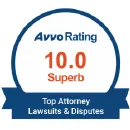

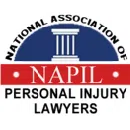



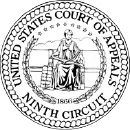
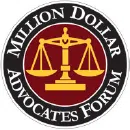









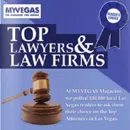

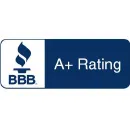






Navigating Nevada’s Car Accident Laws
An Overview of Nevada’s Fault System
Nevada operates under a fault-based system for car accidents, meaning the party responsible for causing the accident is liable for the resulting damages. Victims can seek compensation through the at-fault driver’s insurance or by filing a lawsuit. Understanding this system is crucial for navigating claims, as it involves proving the other party’s negligence. Our experienced attorneys can guide you through this process, ensuring you receive fair compensation.
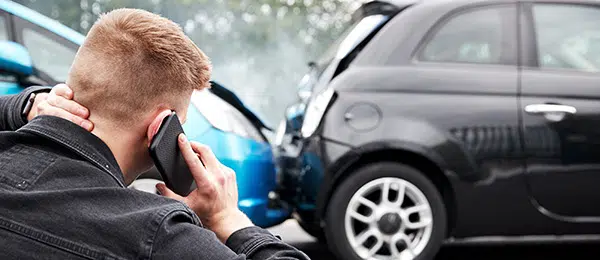
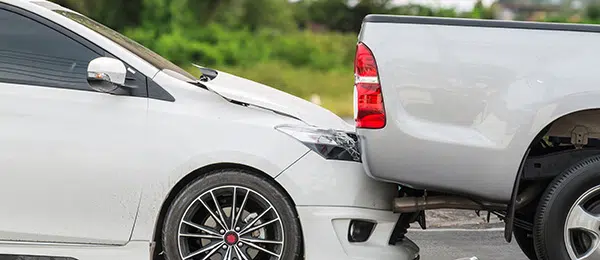
Exploring Comparative Negligence in Nevada
Nevada follows a comparative negligence system, which allows accident victims to recover damages even if they are partially at fault. Under this rule, your compensation is reduced by your percentage of fault. For instance, if you are found 20% at fault, your award is reduced by 20%. Understanding comparative negligence is essential, and our skilled attorneys can help you navigate these complexities to maximize your compensation.
Nevada Driving Statute of Limitations Explained
In Nevada, the statute of limitations for filing a car accident claim is generally two years from the date of the accident. This time limit applies to personal injury and property damage claims. Failing to file within this period can result in losing your right to seek compensation. Consulting with an experienced attorney promptly ensures your claim is filed on time and helps preserve your legal rights.

Frequently Asked Questions About Aggressive Driving Claims
Can Passengers In My Vehicle Also File a Claim Against The Aggressive Driver?
Yes, passengers in your vehicle can file a claim against the aggressive driver. Just like the driver, passengers are entitled to seek compensation for their injuries, medical expenses, and emotional distress caused by the accident. Each passenger can file an individual claim to recover damages. Consulting with an experienced personal injury attorney can help navigate the claims process and ensure that all injured parties receive fair compensation.
What Should I Do If The Aggressive Driver Flees The Scene?
If the aggressive driver flees the scene, immediately call the police to report the hit-and-run. Try to gather as much information as possible, such as the vehicle’s make, model, color, and license plate number. Look for witnesses and ask for their contact information. Take photos of the scene and any damages. Contact your insurance company to report the incident and consult with a personal injury attorney to explore your legal options and ensure you receive the compensation you deserve.
Can I File A Claim If I Was Partially At Fault?
Yes. Nevada follows a comparative negligence system, which allows you to seek compensation as long as you are less than 50% at fault. Your compensation will be reduced by your percentage of fault. For example, if you are found 30% at fault, your award will be reduced by 30%. Consulting with an experienced attorney can help you navigate this process and maximize your compensation.
How Does Aggressive Driving Affect My Car Insurance Policy?
Aggressive driving can significantly impact your car insurance policy. If you’re found guilty of aggressive driving, your insurance premiums are likely to increase due to the higher risk you present. Additionally, repeated offenses can lead to policy cancellation or non-renewal by your insurer. If you’re involved in an accident caused by aggressive driving, your insurer may limit or deny coverage. Consulting with an experienced attorney can help you understand your rights and options.
What Is The Average Settlement Amount For Aggressive Driving Claims?
The average settlement amount for aggressive driving claims varies widely, depending on factors including who pays medical bills after a car accident, property damage, and the impact on the victim’s life. Settlements can range from a few thousand dollars for minor injuries to several hundred thousand dollars for severe cases. Consulting with an experienced personal injury attorney can provide a more accurate estimate based on the specifics of your case, helping you pursue the maximum compensation possible.
Top Aggressive Driving Behaviors That Lead To Accident Claims
Reckless Vehicle Operation
Reckless vehicle operation includes behaviors such as excessive speeding, weaving through traffic, and ignoring traffic signals. These dangerous actions significantly increase the risk of accidents and are a common cause of aggressive driving claims, leading to serious injuries and damages.
Failing To Use Signals
Failing to use signals when changing lanes or turning is a common aggressive driving behavior. This negligence can cause confusion and sudden reactions from other drivers, leading to collisions and serious accident claims involving injuries and property damage.
Intentionally Cutting Off Or Boxing In Other Cars
Intentionally cutting off or boxing in other cars is a dangerous aggressive driving behavior. This hostile action can cause sudden braking or swerving, leading to accidents. Such reckless conduct frequently results in serious injuries and substantial accident claims.
Driving On Roadway Shoulders To Bypass Traffic
Driving on roadway shoulders to bypass traffic is a hazardous aggressive driving behavior. This illegal maneuver endangers other motorists and pedestrians, increasing the likelihood of accidents. It often results in significant injuries and substantial accident claims.
Street Racing
Street racing is an extreme form of aggressive driving that involves high speeds and reckless maneuvers. This dangerous behavior not only endangers the participants but also other road users, often leading to severe accidents, serious injuries, and substantial accident claims.
Tailgating
Tailgating, or following another vehicle too closely, is a common aggressive driving behavior that increases the risk of rear-end collisions. This dangerous practice can lead to sudden braking accidents, causing significant injuries and resulting in substantial accident claims.
Aggressive Lane Changes
Aggressive lane changes involve abruptly switching lanes without signaling or checking blind spots. This reckless behavior can startle other drivers, leading to sudden maneuvers and collisions. Such actions significantly increase the risk of accidents, resulting in serious injuries and substantial claims.
Failure To Yield
Failure to yield occurs when a driver does not give the right of way to other vehicles or pedestrians. This aggressive driving behavior can cause collisions at intersections or pedestrian crossings, leading to severe injuries and significant accident claims.
Read More On Car Accidents Inside Our Blog.
Set Up A Free Consultation With Benson & Bingham Accident Injury Lawyers
Locate Us
Our Locations
Enter your ZIP code to see which location is closer to you
